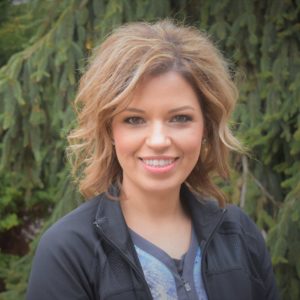No downside to upside risk
One of my previous blog posts talked about the idea of risk and how we have a strong bias toward managing downside risk (the likelihood that things will come out worse than expected) in aging services. It seems that as elders become more dependent and need more services, the issue of upside risk is treated as an impossibility, except when someone is in a rehabilitation setting following a stroke or bone fracture, for example.
Dr. Bill Thomas, founder of the Eden Alternative, and I have been talking about this approach as creating a culture of surplus safety, and we are very pleased that a great deal of thoughtful conversation has begun that is appropriately considerate of all the issues and ramifications in this regard.
I recently heard a presentation about a new program at University of Maryland, Baltimore County (UMBC) that takes a new approach to upside risk with a population that once was treated as having little or no upside potential. I’m referring to individuals with intellectual disabilities, who were believed to be best served by living in institutions or other sheltered environments where the risks posed by their limitations could be cared for using models and methods that provided safety with little or no intellectual challenge. With the advent of deinstitutionalization and more enlightened care, the majority of persons with intellectual disabilities became residents in the general community living in small houses. However, their vocational and educational horizons were still largely limited to basic community living skill education and sheltered workshops doing routine, simple work.
The program, SUCCESS, run by the Shriver Center at UMBC, provides a four-year, post-secondary, noncredit college experience for students with intellectual disabilities, the first of its kind in Maryland. It is a new and unique realization of UMBC’s commitment to being a diverse community (we have students from 147 countries) and a tribute to Gov. Martin O’Malley’s vision to make Maryland the leader in public education. The students experience college life alongside our degree-seeking students and interact with their peers through a wide array of inclusive, educational, social and recreational campus-based activities, including participating in first-year seminars, initiating and leading service learning projects and others (see the news report of this program for more information).
SUCCESS was introduced to the university’s senior leadership group (of which I am a member) in a remarkable and stirring presentation featuring the students talking eloquently (that’s right) about how excited they were to be able both to enjoy the thrill of anticipating being college-bound while they were high school seniors and now to be a college student. Each person was asked what he or she liked best about college life.
One young woman’s response was resonant to an issue we in the nursing home world have begun to address. She said: “I like going to the dining hall and choosing whatever I want to eat.” That freedom encapsulated her new life: She was free to make her own decisions. Nobody was there to tell her what to eat or serve her a tray of food. She was like everyone else. What a victory!
After the presentation we all had a chance to react. Here is a wonderful example of society finally looking at upside risk to see what is possible for these young people. And, as in the past, the world of intellectual disabilities has a great deal to teach the world of aging services on how to eliminate barriers—especially self-fulfilling prophesies—to upside risk.
Research has shown that expectations are usually fulfilled when people are labeled or “tracked” or when theories are tested in laboratories under conditions that create limited environmental support for growth. We in aging services need to take a serious look at the self-fulfilling prophesies about what elders are capable of doing and change those environments that provide a paucity of opportunity and use the outcomes to support our predictions of poor outcomes.
To me, SUCCESS is creating a mind-set that good things will happen when stereotypes are set aside. People’s behavior can flourish in the right setting in a positive atmosphere. These young people were encouraged to make a success of their time at college even though they would not earn a degree. Maybe they were getting a more important outcome; they had the chance to see that success can happen if the environment provides opportunities to take upside risks. There is a lesson here about what SUCCESS is.
I Advance Senior Care is the industry-leading source for practical, in-depth, business-building, and resident care information for owners, executives, administrators, and directors of nursing at assisted living communities, skilled nursing facilities, post-acute facilities, and continuing care retirement communities. The I Advance Senior Care editorial team and industry experts provide market analysis, strategic direction, policy commentary, clinical best-practices, business management, and technology breakthroughs.
I Advance Senior Care is part of the Institute for the Advancement of Senior Care and published by Plain-English Health Care.
Related Articles
Topics: Activities , Alzheimer's/Dementia , Clinical , Executive Leadership











